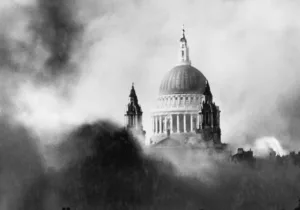Are military coups ever justified against elected governments?
Chile recently commemorated the 50th anniversary of General Augusto Pinochet’s coup against elected Marxist President Salvador Allende on September 11, 1973. Some anti-American ideologues, like theologian Stanley Hauerwas, cite it as the “other 9-11,” which the USA supposedly inflicted on Chile.
The coup was welcomed by but not orchestrated by the Nixon Administration, which understandably feared Allende’s seeming sovietization of Chile. George Will has written that Allende’s overthrow was the first blow to the Brezhnev Doctrine, which insisted that once a country became communist it could never be allowed to go back. With Indochina on the verge of collapse, amid other strategic setbacks in Africa, the U.S. did not want a pro-Soviet regime in South America.
For years the U.S. had backed Chilean opponents of Allende, both before and after he took office in 1970. He won in a three way race with less than 37%, hardly a mandate for revolutionary change. His election by a minority had to be ratified by the Chilean Congress, which traditionally picked the top vote getter. But the Congress, worried by his ambitions, required him to affirm a Statute of Constitutional Guarantees, upholding Chilean law. Allende did so strategically and disingenuously.
Allende unsurprisingly defied his own promises and fulfilled the worst expectations of his adversaries. He was bold but he was not wise, as a minority elected president enacting drastic policies lacking majority support and opposed by most other segments of state and society. His nationalizations fueled economic meltdown and inflation, while he armed militias as a counterforce to the military and denounced critics as class enemies. Fidel Castro triumphantly visited Chile for one month. But even he counseled his ally to go slow, an approach the Soviets affirmed, and which Allende ignored.
Chile’s Congress, essentially backed by the Supreme Court, accused Allende of pursuing a “totalitarian system,” while asking the military to guard the constitution. The Congress lacked the two-thirds majority to directly remove him. Allende derided Congress as counterrevolutionaries, but his “totalitarian” ambition had not yet accumulated sufficient power to block a coup. Some senior military officers, loyal to Chile’s civilian democratic tradition, abstained. But most backed Pinochet’s coup, which had little trouble against Allende’s Cuban trained guards. Allende himself committed suicide.
Allende’s democratic opponents hoped and maybe assumed the new military regime replacing Allende would be brief and transitional, restoring the constitution. But coups don’t typically work that way. Once seizing absolute power by force, new rulers are slow if ever to release it. Pinochet stubbornly remained dictator for 17 years, killing several thousand, torturing tens of thousands, arresting over one hundred thousand foes (equal to about three million as percentage of the U.S. population), closing all opposition press and meaningful opposition parties. He also was corrupt, and personally profited from his near absolute power, because that’s what dictators do.
Although the U.S. initially welcomed the coup, Pinochet’s despotism and human rights abuses hampered relations with America. In 1976 Chilean agents murderously car bombed Allende’s former foreign minister Orlando Letelier on a Washington, D.C. street, permanently precluding close ties between Pinochet and Washington. (Chilean President Gabriel Boric is currently in Washington commemorating the bombing and dedicating a memorial to Allende at the Organization of American States.) Even the Reagan Administration, anxious to block Marxist inroads in Latin America, kept Pinochet at arm’s length. Eventually the U.S., the Catholic Church and other actors pressured Pinochet into a peaceful ouster and democratic transition resulting in relative stability and prosperity for Chile for most of the last 30 years.
So was the violent overthrow of Allende justified? Should the opposition instead have waited for the next presidential election in 1976, or would Allende’s “totalitarian” project have already been fulfilled? Allende’s presidential predecessor warned the world against Allende, urged the military to revolt, served in Pinochet’s regime, was himself revolted by Pinochet’s many excesses, denounced him, and was himself possibly assassinated by the regime.
Nobody can be entrusted with absolute power, and those who attain it, even with laudable purpose, are almost inevitably corrupted by it, rarely if ever surrendering what they gained. We’ll never know what would have happened absent Pinochet’s coup. Perhaps Chile would have become Cuba. Or perhaps widespread resistance would have peacefully and democratically arrested Allende’s trajectory to dictatorship.
Allende’s fecklessness implies he ultimately would have failed. But his opponents were understandably terrified and anxious for dramatic action. Few if any of them realized the steep cost of relinquishing Chilean democracy to harsh military dictatorship. Providentially, Chile eventually landed safely, but at a tremendous cost in lives and suffering. Allende and Pinochet, with their enablers, were partners in destroying Chilean democracy for nearly two decades.
Chile 1970-1990 is a warning to all who are tempted to extremism and political absolutism. Democratic patience and gradual consensus building are always difficult and time consuming. Bold action against perceived enemies is always more exhilarating. But the Christian and more sensible aspiration in society is not to destroy enemies but to persuade them. The greatest and shrewdest conquest is transforming foes into friends.







 Sponsor a student for Christianity & National Security 2024
Sponsor a student for Christianity & National Security 2024